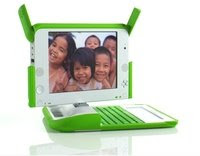On this day in 1945, we dropped the first of two atom bombs on Japan. World War II ended days later.
My friend and co-founder of The Naples Institute, Jim Fisher, shared a piece about this event from his memoir-as-novel, In The Shadow of The Courthouse. He was a child at the time, and questioned the jubilation of the adults around him as they heard of this bombing of civilians.
My immediate reaction to any perceived criticism of the atom-bombing of Japan in 1945 is quite visceral. My blood began to boil as I started reading Jim's missive. There are some truths the defense of which I take as a defense of all I hold dear: the sanctity of our Constitution, the righteousness of the Union in the Civil War, the treason of the Confederacy, its leaders, and its entire population in the same, the need for Good nations to act swiftly and decisively to protect the weak from genocide, as in the Balkans in the 90's or Darfur today, and the bombing of Japan in 1945 among them. The fact that there are those among us who question my positions triggers the "fight" part of my fight-or-flight animal response in a way that rarely happens in other situations. After all, I am an adult, and in most other cases I can control my baser emotions, such as rage or jealousy.
I have taught English to hundreds of adult Japanese students, and the fact that they look upon themselves as innocent victims in the bombings of Hiroshima and Nagasaki appalls me. To this day, Japanese school children are not taught of the horrors of the Rape of Nanking, the Bataan Death March, the Korean "Comfort Women," or any of the many other atrocities perpetrated by their citizen-soldiers. They have no idea that their military equipped hundreds of thousands of women and children with hedge-clippers and garden rakes to combat the invading Americans; that all of them were expected to fight to the death for their emperor. Indeed, they are taught in school that the US was the aggressor in WWII because we cut them off from oil and rubber imports - why is never mentioned - and their nation would have crumbled had they not "defended" themselves. This travesty is akin to German Holocaust denial, but on an intentional cultural-wide scale.
The bombing of Japan is all the more important to me because of my own father's experience. He turned 18 in November 1944, and signed up for service that same day. He went through basic training to head off to Europe, but had an operation that kept him stateside. His buddies sent him letters from the front. When he had finally recovered, he was redirected to prepare for the invasion of Japan instead. He knew very well that he likely would have been among those estimated hundreds of thousands or one million American servicemen expected to die in the case of an invasion of the Japanese home islands. In all probability, I write this blog entry only because Truman ordered bombs dropped on Japan.
...But it has always bothered me that we chose cities rather than military targets. I haven't got an answer for why that was okay. And so, as I read Jim's piece, I ordered myself to simmer down and let his words sink in. They didn't change my mind about how we ended the war, but they did reinforce my belief that we erred morally in choosing civilian targets.
As always, your thoughts are warmly accepted: ted@naplessocialaction.org
Thursday, August 7, 2008
Subscribe to:
Post Comments (Atom)


No comments:
Post a Comment